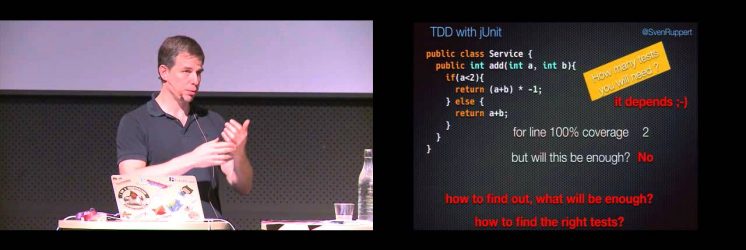JUnit is a well-known tool for java developers in the area of TD where it is accepted that code coverage can be measured. In this case we distinguish between coverage on the level of classes, methods and rows. The goal is to get the code coverage as high as possible on the row level, but not higher than necessary. What exactly does it mean?
A code coverage of around 75% on the row level is very good and can already provide a basis. But what does this figure say? In this talk we will deal with the term Mutation Testing and show the practical ways of use it. How can the coverage be defined and what can be achieved? How can it be integrated into an existing project and what should be considered while running a test?
Video producer: http://www.jfokus.com
